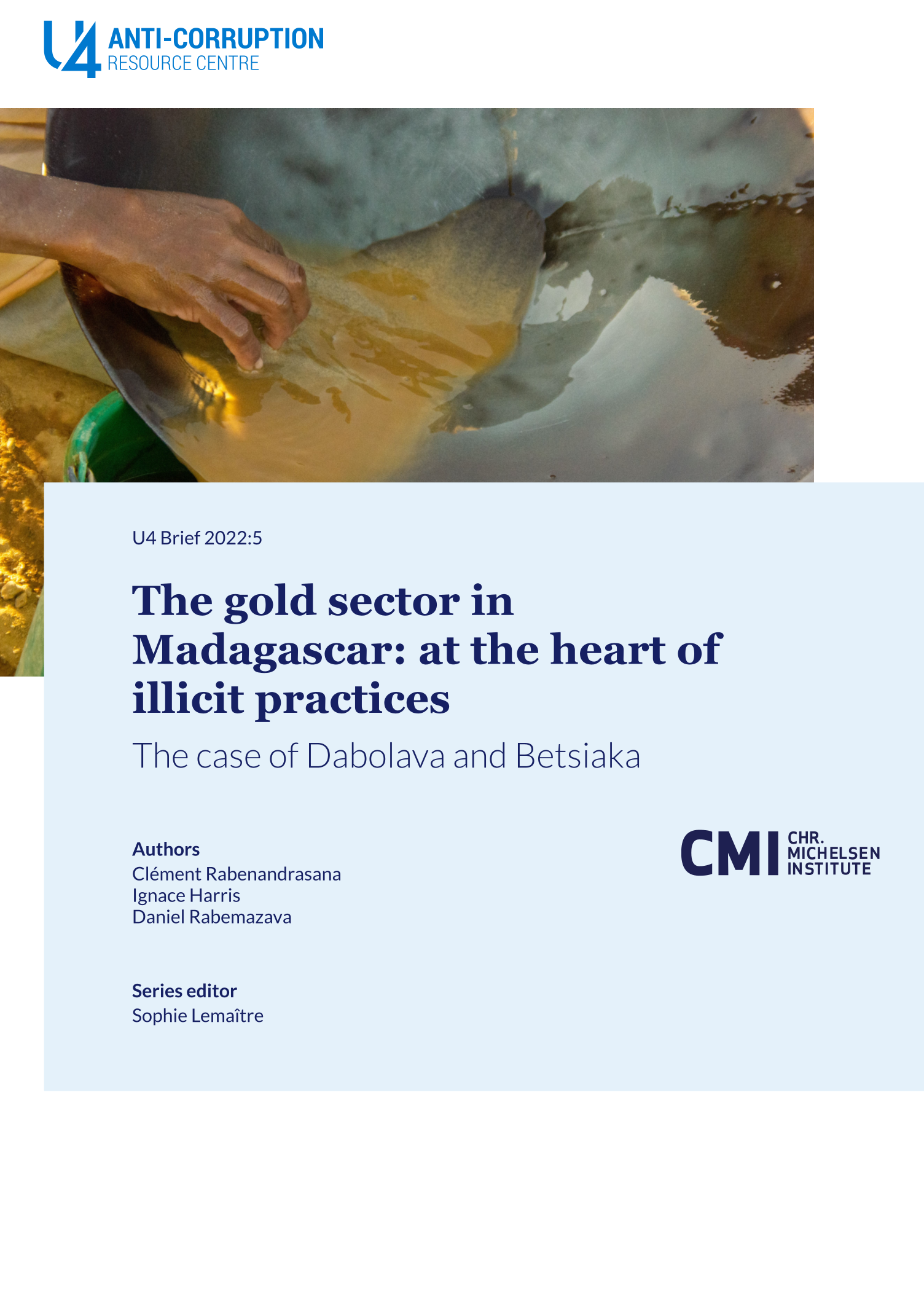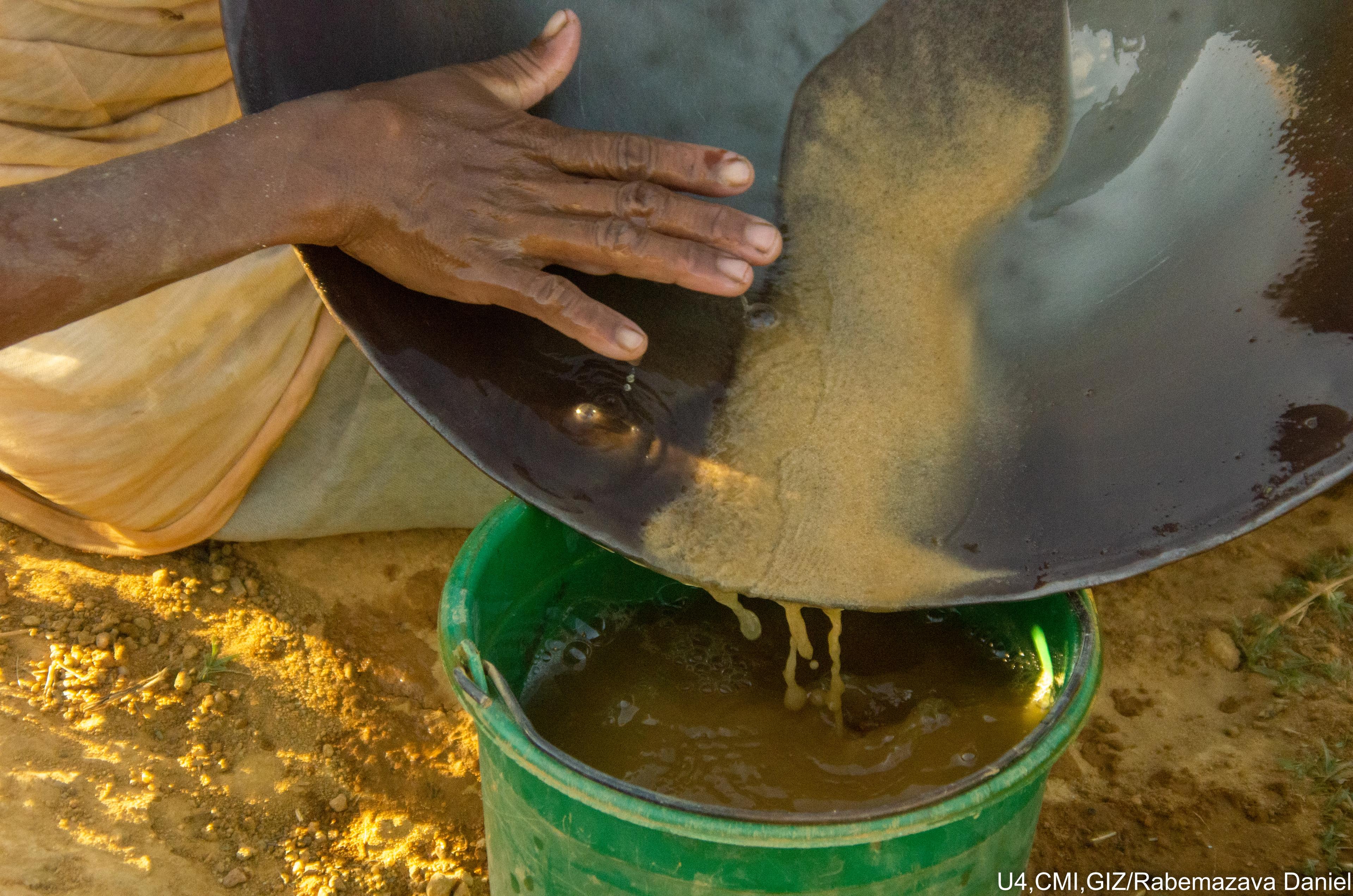This U4 Brief in English is a short version of the full report Le secteur de l’or à Madagascar : au cœur des pratiques illicites. Le cas de Dabolava et Betsiaka, available in French.
Main points
- In Madagascar, the state has adopted various measures to improve the governance of gold exploitation and has devised a national strategy for the governance of the gold industry to combat illicit practices. But some links in the chain are not playing their role.
- Corruption, illegal exploitation of natural resources and gold laundering, fraud and tax evasion, smuggling and money laundering are identified as drivers of the increase in illicit practices in the gold sector.
- Other problems such as the legal vacuum that exists in relation to bedrock mining, a lack of communication between state institutions, the poor distribution of roles between institutions, the practice of exploiting gold outside of authorised locations and counterfeiting in the gold sector were also identified.
- Strategic recommendations are made to the administrative bodies responsible for mining and all ministries involved in mining activities to clarify the role and positioning of each institution, strengthen their capacity to enforce legislation and control the actors involved, and put in place an internal anti-corruption policy.
- Concrete recommendations for each phase, from the exploitation to export – including marketing, transport and processing – of gold, are proposed with the identification of the actors for each measure.
- The application of the proposed measures and the strengthening of awareness campaigns to formalise the sector should enable the Malagasy State to put a stop to the losses it faces in gold mining and, instead, benefit from this potential major source of development.


